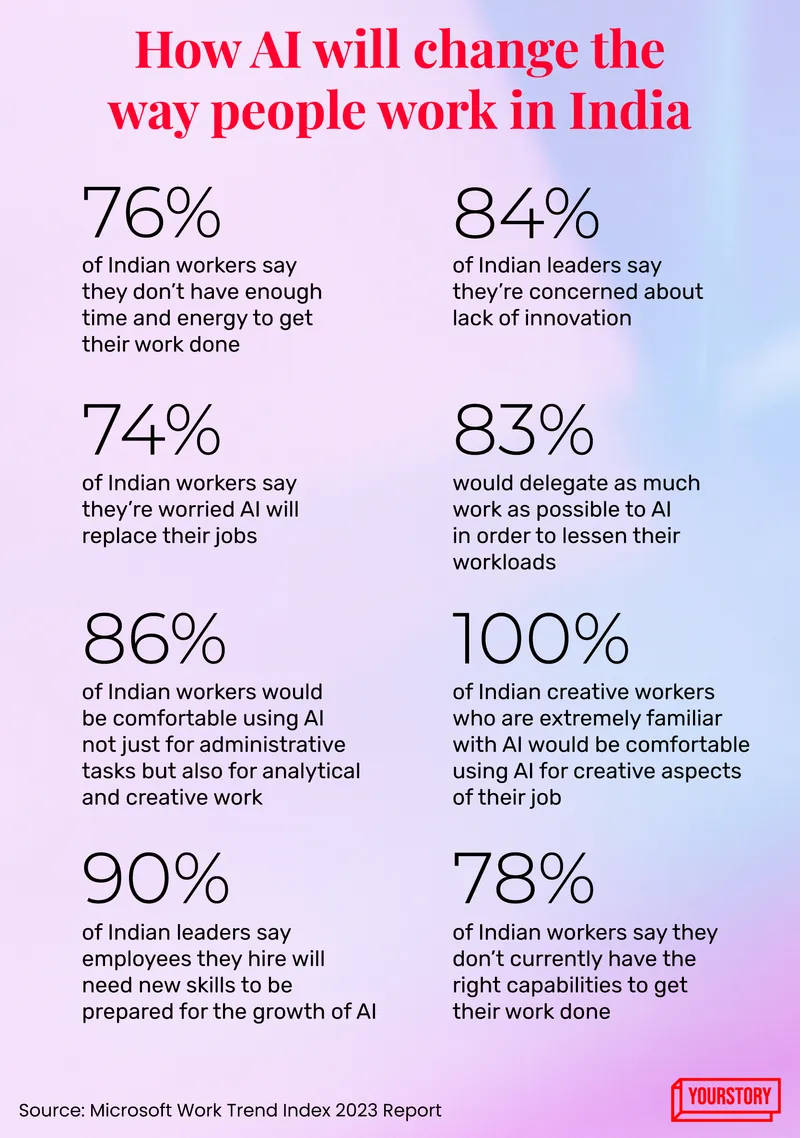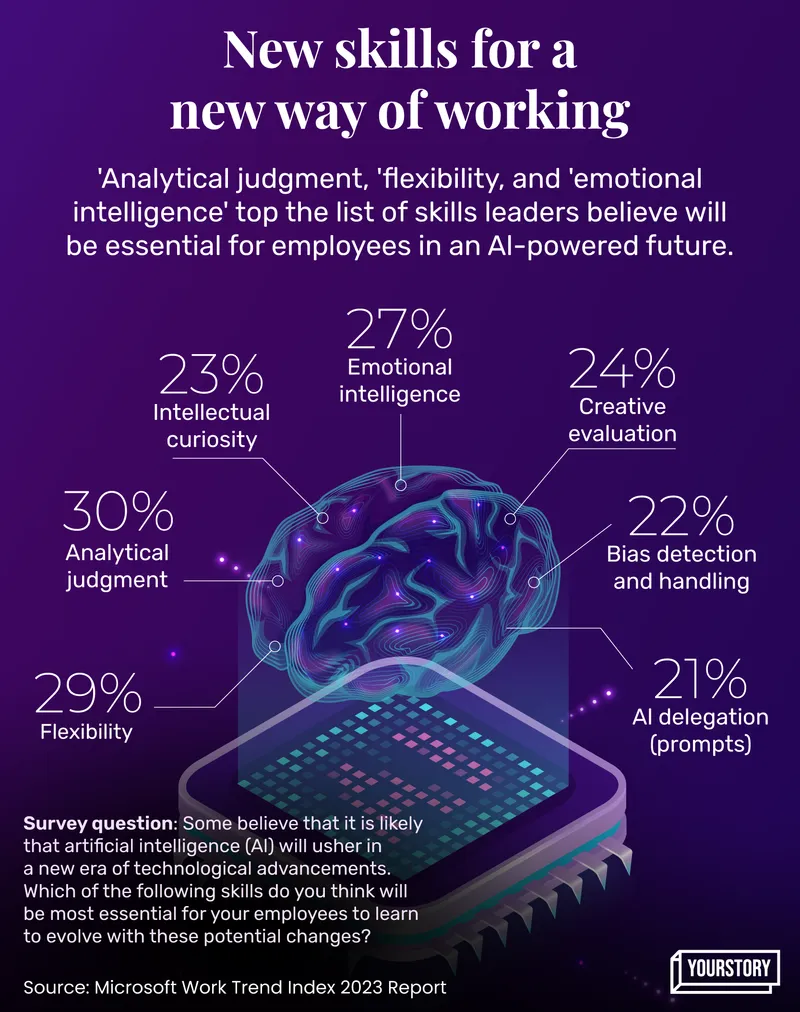AI poised to create whole new way of working, says Microsoft report
Despite a significant majority (74%) of Indian workers expressing concerns about AI replacing their jobs, an even greater proportion (83%) are open to delegating tasks to AI in order to alleviate their workloads.
Artificial Intelligence (AI) holds the potential to revolutionise the way we work and enable organisations that proactively adopt AI to enhance creativity and productivity of all employees, according to a report.
“As the nature of work evolves, AI promises to be the biggest transformation to work in our lifetimes. The next generation of AI will unlock a new wave of productivity growth, removing the drudgery from our jobs and freeing us to rediscover the joy of creation,” Bhaskar Basu, Country Head–Modern Work, Microsoft India, said.
Microsoft on Thursday released the India findings of its flagship 'Work Trend Index 2023 Report: Will AI Fix Work?' The data shows that the pace of work has accelerated faster than humans can keep up, and it is impacting innovation.

Infographic credit: Winona Laisram
According to the report, a significant majority of Indian workers (76%) said that they lack sufficient time and energy to accomplish their work effectively. Moreover, individuals facing this challenge are 3.1X more likely to report difficulties in fostering innovation.
On a global scale, the percentage of people sharing similar concerns is slightly lower, with nearly two-thirds, or 64%, expressing the same sentiments.
“AI can help to lift the burden,” Microsoft’s report noted. “To date, AI has mostly been on autopilot. Now, next-generation copilots will work alongside people.”
Despite a significant majority (74%) of Indian workers expressing concerns about AI replacing their jobs, an even greater proportion of people (83%) are open to delegating tasks to AI in order to alleviate their workloads. On a global level, the corresponding percentages stand at 49% and 70% respectively.
While there are signs of a new alliance between AI and employees, the shift towards AI as a co-pilot requires a complete reimagining of the work dynamic, along with the development of a new AI aptitude. This means that every employee will need to acquire new skills, such as critical thinking and analytical judgement, and complex problem-solving.
A significant majority of Indian corporate leaders (90%) believe that the employees they hire will require fresh skills to adapt to the expanding presence of AI. In parallel, 78% of Indian workers express that they presently lack the appropriate capabilities to effectively fulfil their job responsibilities. Globally, the corresponding figures are 82% and 60%, respectively.

Infographic credit: Winona Laisram
Basu explained, “The opportunity and responsibility for every organisation and leader is to get AI right—testing and experimenting with new ways of working to build a brighter future of work for everyone.
“This will require not just investing in AI, but also ensuring that every employee has the necessary AI aptitude to thrive in the new world of work,” he added.
The survey for the Work Trend Index was carried out by Edelman Data x Intelligence, an independent research firm. It encompassed 31 markets and involved 31,000 participants who were either full-time employed or self-employed workers. The survey was conducted between February 1 and March 14, 2023. In India specifically, 1,000 individuals were surveyed as part of the study.
(Infographics and cover image by Winona Laisram)
Edited by Kanishk Singh








